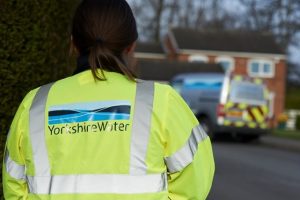Recent floods act as a timely reminder there’s more work ahead – WSP

Engineering and planning consultancy WSP is working with Yorkshire communities and businesses to strengthen defences against the effects of flooding.
By embracing “future ready” programmes WSP to helping to prepare the region for increased flooding caused by extreme weather anomalies. But, as demonstrated by this weekend’s flood alerts across Yorkshire, whilst current warning systems and flood defences are helping, there are still communities at risk and more work to be done.
WSP is currently leading a review for the UK government’s Committee on Climate Change into how climate change is affecting the natural and built environment, including infrastructure. On such a complex, multi-sector issue, the review is allowing for the widest engagement possible and the outcomes will shed more light on what the future holds.
But for now, the events back in 2015/16 brought home how vulnerable Yorkshire is to flooding. That winter up to 20,000 homes were affected with an estimated cost of £1.3-1.6bn in economic damage to the UK economy. Since then, the government invested further £200M to help communities recover.
WSP Leeds flooding and drainage teams are currently involved in more than a dozen flood management schemes across Yorkshire and is already working with several communities to achieve common goals on future water management.
Otley suffered some significant flooding in 2015. As a result, Leeds City Council received funding from central government to help promote a flood scheme in the town and recent public consultation events showed the progress that has been made.
But this is just one scheme of many across the region that various organisations are working on in the fight against flooding.
WSP Flooding & Drainage Technical Lead Paul Swift said: “It’s clear there is a lot of work going on across the region and it is being shared across numerous organisations. As these extreme weather events proliferate and intensify, it is vital that those responsible for flooding and water management continue to work to protect communities. The challenge will come when we can no longer build ever-higher barriers to prevent flooding, so then we need to work with communities to come up with solutions that fit the local environment and make then ‘future ready.”
Paul concluded: “A lot more work has been undertaken in Yorkshire since the 2015 floods but this weekend’s floods demonstrated how some of our communities and regional infrastructure still remain at risk.
He added: “So whilst this weekend’s floods did not cause as widespread flooding as in 2015, it should act a timely reminder that there’s still more work to be done, so more homes and livelihoods across Yorkshire can be protected from the ever-changing weather patterns we will be facing in the future.”
STORM STATS:









